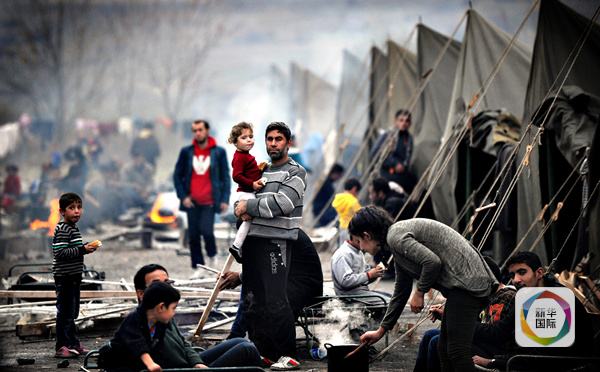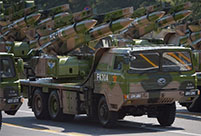

 |
BERLIN, Sept. 13 -- German Interior Minister Thomas de Maiziere on Sunday announced that Germany temporarily reinstates border control amid the ongoing refugee crisis.
Border controls will take place mainly in Bavaria, the minister said. "The aim is to limit the refugees influx."
"The action will not solve all problems. We need more time and a degree of order on our borders," said Thomas de Maiziere.
De Maiziere also said that the introduction of border controls is compatible with the Schengen Agreement.
Under the current European law, Germany is not responsible for most of the asylum seekers, he said, adding that the rules of the Dublin Convention are still valid.
He called on all European Union (EU) Member States not just to register the refugees entering the EU, but also to carry out the asylum procedure.
De Maiziere stressed that the reintroduction of temporary border controls has "been in the coalition discussed and decided by common accord."
EU'S RESPONSE
The European Commission on Sunday said that the German decision of temporary border controls underlined the urgency to agree on the measures proposed by the Commission in order to manage the refugee crisis.
"The temporary reintroduction of border controls between Member States is an exceptional possibility explicitly foreseen in and regulated by the Schengen Borders Code, in case of a crisis situation," said a Commission statement.
It said that "the current situation in Germany, prima facie, appears to be a situation covered by the rules."
"The objectives of our efforts must be to help ensure that we can go back to the normal Schengen system of open borders between Schengen Member States as soon as feasible," it said.
The statement noted that the free movement of people under Schengen is a unique symbol of European integration. However, the other side of the coin is a better joint management of our external borders and more solidarity in coping with the refugee crisis.
"We need swift progress on the Commission's proposals now," it said.
TRAINS TO, FROM AUSTRIA SUSPENDED
According to German newspaper "Passauer Neue Presse", the German Government also stopped the train to and from Austria.
The Austrian Federal Railways announced Sunday it temporarily suspended train services to Germany at the request of Germany's rail service. The halt in rail traffic is to last for 12 hours, and be lifted at 6:00 am local time on Monday morning.
As the German newspaper Bild reported, Germany's Bavarian state government has asked for mobilization of federal police to accomplish the task.
The German government would send 21 groups of hundreds of riot police to Bavaria to help secure the border, said the report.
According to the report, the German police will also expand their dragnet controls to the borders with the Czech Republic and Poland in order to prevent evasion of border controls to Austria.
Germany expects an unprecedented influx of up to 800,000 refugees and asylum seekers this year, as Europe is grappling with its biggest migrant crisis since the Second World War.
While there have been internal divisions between EU member states and EU institutions over the refugee issue, German Chancellor Angela Merkel's decision to suspend the Dublin Rule, which requires refugees to register asylum requests in the country where they have first arrived in Europe, helped achieve agreement on emergency measures.
However, a spokesman for Germany's interior ministry said at the beginning of September that Germany has not suspended Dublin rules.
In the past week, tens of thousands of refugees had taken the so-called Balkan route and arrived in Germany via Austria, especially with trains to Munich, the first stop in Germany for most refugees.
European Union member states' interior minister will gather in Brussels for an extraordinary meeting to discuss refugee-related issues.
 Models change clothes on street in Hangzhou
Models change clothes on street in Hangzhou Charming iron ladies in China's upcoming V-Day celebrations
Charming iron ladies in China's upcoming V-Day celebrations In pics: armaments displyed in massive military parade
In pics: armaments displyed in massive military parade Charming Chinese female soldiers
Charming Chinese female soldiers Volunteers required not taller than 5ft 5in
Volunteers required not taller than 5ft 5in  Czech pole dancing master teaches in Xi'an
Czech pole dancing master teaches in Xi'an Shocked! PLA smokescreen vehicle drill
Shocked! PLA smokescreen vehicle drill Foreigners experience tranditional Chinese wedding
Foreigners experience tranditional Chinese wedding Blind date with bikini girls in Nanjing
Blind date with bikini girls in Nanjing Living heritage
Living heritage More SOE reforms on the way
More SOE reforms on the way NYT shifts refugee crisis attention to China
NYT shifts refugee crisis attention to China Govt cracks down on editors accepting bribes to delete negative online reports
Govt cracks down on editors accepting bribes to delete negative online reportsDay|Week